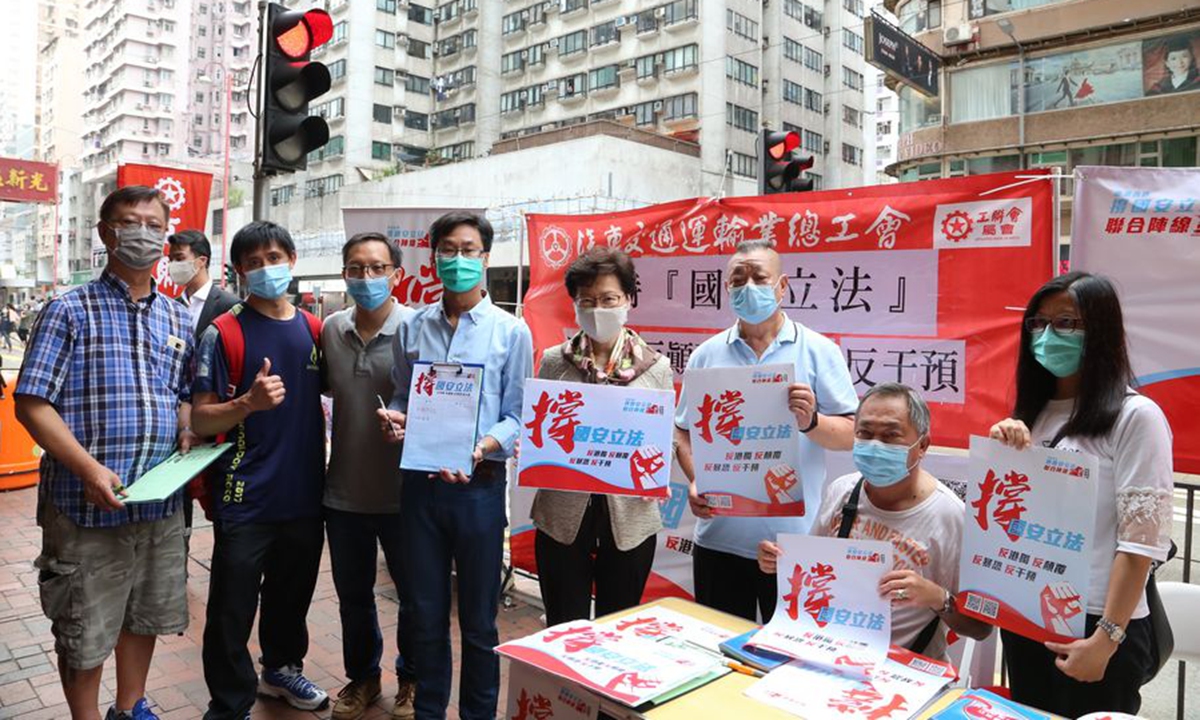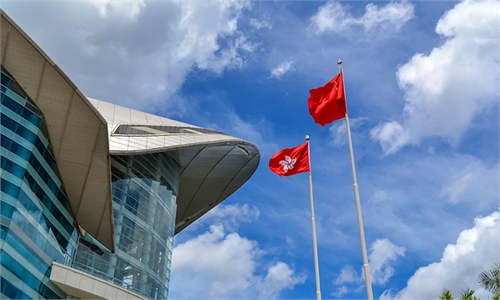HK chief executive urges international community to respect need for national security law

Chief Executive of the Hong Kong Special Administrative Region Carrie Lam visits a street stand and signs a petition in support of the national security legislation in Hong Kong on May 28. Photo: Xinhua
Hong Kong's Chief Executive Carrie Lam said at the United Nations Human Rights Council on Tuesday that the national security law for Hong Kong will not undermine the city's judiciary or autonomy, and urged the international community to respect the mainland's right to safeguard its national security.
In a video message to the Human Rights Council in Geneva, Switzerland, Lam said Hong Kong had been "traumatised by escalating violence fanned by external forces." "No central government could turn a blind eye to such threats to its sovereignty and national security."
For those foreign governments or politicians raising objections to the legislation, one could only lament the "double standards" they are adopting, said Lam.
Lam's remark was made the same day that the National People's Congress, China's top legislature, voted unanimously to pass the National Security Law for Hong Kong.
"The legislation aims to prevent, curb and punish acts of secession, subversion of state power, terrorist activities... These crimes will be clearly defined in the law. We will only target an extremely small minority of people who have (broken) the law," said Lam.
She said that the law will not affect Hong Kong's renowned judicial independence. It will not affect the legitimate rights and freedoms of individuals, which are protected under the HKSAR Basic Law and the relevant provisions of international covenants as applied to Hong Kong.
She cited the fact that organizations advocating "Hong Kong independence" and "self-determination" incited protesters and radicalized young people to desecrate and burn the national flag, vandalize the national emblem and storm the central government's office in the city.
Furthermore, some local politicians proclaimed that they would paralyze the Hong Kong SAR Government while others campaigned for foreign governments to interfere in Hong Kong's affairs, or even to impose sanctions on the city. No central government could turn a blind eye to such threats to its sovereignty and national security, and risk subversion of state power, said Lam.
National security invariably comes under the purview of the central authorities, be it in China or any other country. In all countries, the power to legislate on national security rests solely with the central government, according to Lam.
Macao successfully completed this task in 2009. Hong Kong, after a failed attempt in 2003, has not been able to fulfill its constitutional duty. For the sake of not only the 7.5 million Hong Kong residents, but also the 1.4 billion people in the Chinese mainland, the question of how long we can tolerate such a gaping hole in national security has to be asked, and answered, she said.

